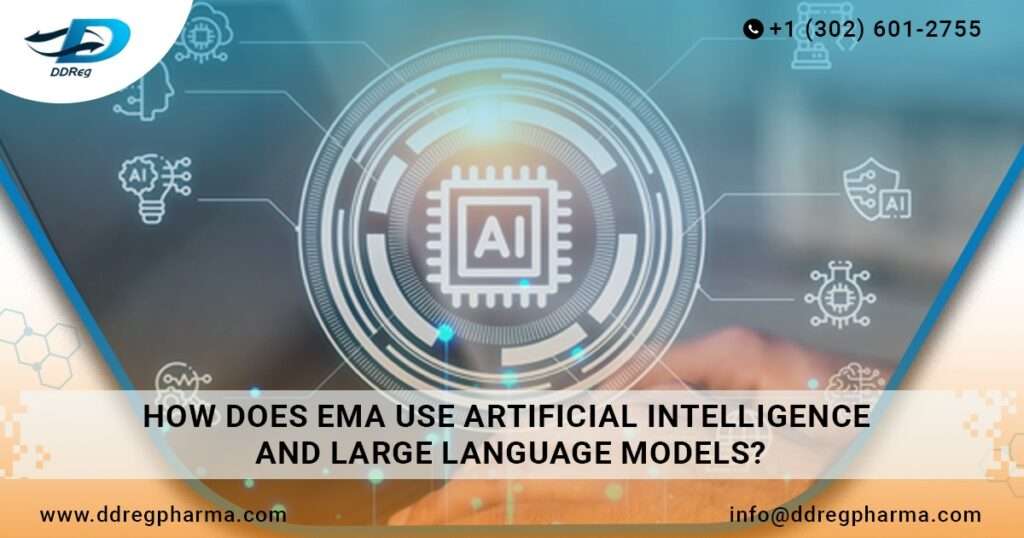Artificial Intelligence in Medicine Regulation– a perspective by Emer Cooke, Executive Director of the European Medicines Agency.
Introduction
Artificial Intelligence (AI) is revolutionizing the regulation of medicines by offering innovative solutions to enhance drug safety, efficacy, and overall patient well-being. With its ability to process vast amounts of data, identify patterns, and predict potential risks, AI is becoming an indispensable tool for global regulatory consulting and agencies and pharmaceutical companies alike. From drug discovery and clinical trials optimization to pharmacovigilance services and quality control, AI is ushering in a new era of precision and efficiency in the pharmaceutical industry, ultimately benefiting patients by ensuring safer and more effective medications.
Large Language Models
Indeed, several challenges and opportunities of AI have emerged, particularly after the launch of Large Language Models (LLMs)- the latest sophisticated artificial intelligence in Medicine Regulation system designed to understand and generate human-like text. These models are constructed with a vast number of parameters, allowing them to store extensive knowledge and linguistic patterns. They undergo a two-step process:
- Pretraining: LLMs are exposed to massive datasets to learn general language understanding.
- Fine-tuning: adapts the LLMs for specific tasks or domains.
LLMs can comprehend context, generate coherent text, and excel in a wide range of natural language processing tasks, from translation to text generation. They have become pivotal in applications to transform the landscape of human-computer interaction and natural language understanding.
Regulators and Large Language Models: a synergy
Emer Cooke, the Executive Director of the European Medicines Agency (EMA) provides her insight into how EMA utilizes AI and LLMs.
“People are excited and worried at the same time about this technology. There are millions of tips on how to reap the benefits of AI in various domains and industries and how to minimize the risks. But there are also many warnings, for example, an uncontrollable superintelligence AI.”
Chatbots, speech-to-text applications, extraction and summarization of content, documents and text comparisons or automatic triage queries received from stakeholders are some of the ways in which EMA uses AI to increase the efficiencies of their internal processes. She added “AI will influence and change the way we collect and analyze the evidence to evaluate medicines and keep them safe… we as regulators should use these tools well.”
She also proposed other aspects in which AI and machine learning (ML) tools could be applied:
- Enhancing the use of animal models that would be utilized during pre-clinical development stages by 1) replacing animal use with non-animal methods, 2) reducing the number of animals to minimal in order to get accurate results, and 3) improve practices that would reduce the stress on animals and improve their welfare.
- AI and ML systems can support better patient selection for clinical trials.
- AI applications can help draft, compile, translate or review necessary data that should be included in a medicine’s product information.
- AI tools can effectively support post-market pharmacovigilance (PV) activities i.e., management suspected adverse event reports.
EMA and other EU Member States are looking into the possible use of Artificial Intelligence in Medicine Regulation while keeping in mind some of the challenges associated with AI including biases of algorithms, ethical considerations and understanding the AI system, especially as it learns from more and more data with time.
It is important to establish appropriate regulations to prevent AI misuse and abuse to help mitigate risk while also providing reassurance for medicine developers to embrace and accept this technological disruptor.
Read our blog on EMAs draft reflection paper on AI and the regulation of medicines.
References and Further Reading
- Emer Cooke, Executive Director of the European Medicines Agency. AI is here to stay. What does it mean for medicine regulation?
- Emer Cooke, Executive Director of the European Medicines Agency. 3Rs Principles. 2023
- The use of AI in the medicinal product lifecycle. European Medicines Agency. 2023
Read our previous blog on the US FDAs guidance for formal meetings to support biosimilar product development. Visit our Resource Center to navigate some of the trends and key industry drivers.

